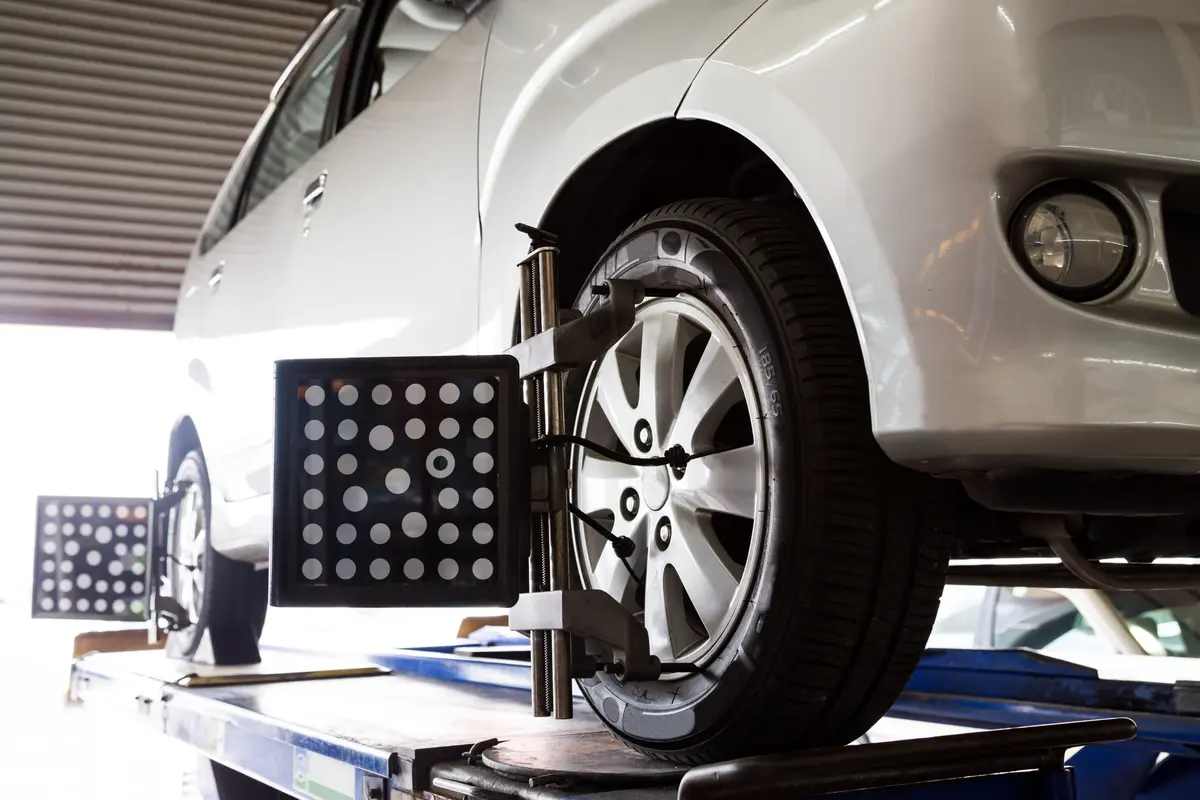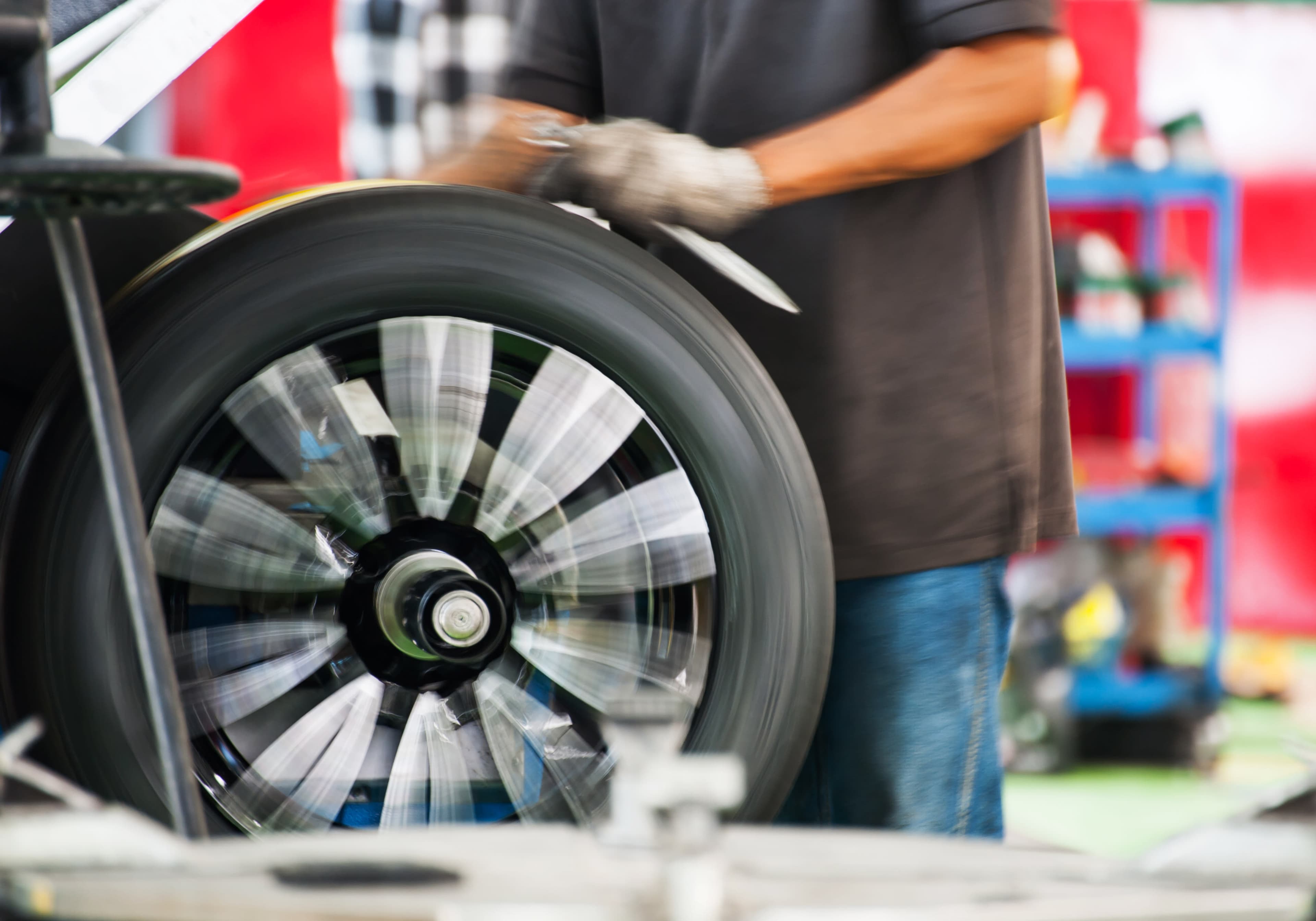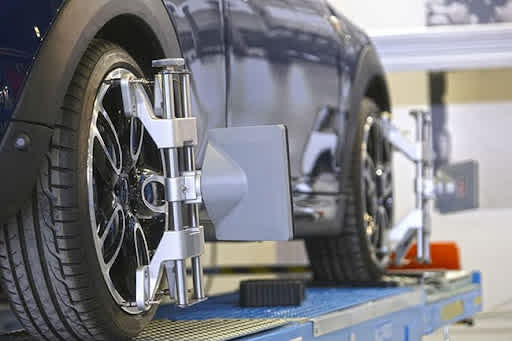Tire Maintenance & Safety
Best price guarantee
Tire replacement coverage
24/7 roadside assistance
Easy returns
What is Tire Alignment and Why It Matters

Proper wheel alignment is crucial for ensuring a safe, comfortable, and efficient driving experience. However, many vehicle owners often overlook or misunderstand this critical aspect of car maintenance.
Misaligned wheels can lead to a host of problems, from uneven tire wear and decreased fuel efficiency to compromised handling and stability. Knowing the truth about tire alignment can help you make informed decisions about your vehicle's upkeep and extend the life of your tires.
In this article, we'll delve into the importance of tire alignment, burst common misconceptions, and provide guidance on when and how to have your wheels aligned. By the end, you'll have a clear understanding of this essential service and how it contributes to your vehicle's overall health and performance.
What is Tire Alignment?
Tire alignment, also known as wheel alignment, refers to the adjustment of your vehicle's suspension components to ensure that the wheels are perpendicular to the ground and parallel to each other. This precise positioning is essential for optimal tire wear, handling, and fuel efficiency.
A proper alignment ensures that your vehicle tracks straight and true, without pulling to one side or the other. It also helps distribute the weight of your vehicle evenly across all four tires, promoting uniform wear and extending their lifespan.
There are three main angles that technicians adjust during an alignment:
- Camber: The inward or outward tilt of the tire when viewed from the front. Too much tilt can cause wear on the inside or outside edges of the tread.
- Toe: The angle at which the tires point inward or outward when viewed from above. Improper toe alignment can lead to rapid or uneven wear.
- Caster: The angle of the steering axis when viewed from the side. This angle affects steering feel and stability.
Misalignment can occur gradually over time due to normal wear and tear, or suddenly from hitting potholes, curbs, or other road hazards. Symptoms of misalignment include:
- Uneven or rapid tire wear
- Vehicle pulling to one side
- Steering wheel vibration or off-center positioning
- Squealing tires
Regular alignments, typically every 6,000 miles or 6 months, can help prevent these issues and keep your vehicle running smoothly. Consult your owner's manual for specific recommendations, and be sure to have your alignment checked whenever you install new tires or experience unusual tire wear or handling problems.
The alignment process involves a thorough inspection of your vehicle's suspension and steering components, precise measurements using specialized equipment, and adjustments to bring the angles within manufacturer specifications. Trusting this service to trained professionals with the right tools and expertise, like the technicians at SimpleTire, can ensure the best results for your vehicle.
Signs You Need a Tire Alignment
Detecting alignment issues early helps prevent unnecessary wear on your tires and potential safety hazards. One significant indicator is when the tread on your tires shows signs of feathering or cupping. These patterns suggest that the tires are not making proper contact with the road, which often results from misaligned wheels. Tires wearing in such a manner may lead to reduced traction and efficiency if left unaddressed.
Another symptom to watch for is your vehicle's tendency to drift or wander despite holding the steering wheel steady. This subtle shift might require constant minor adjustments to keep the vehicle on a straight path, leading to driver fatigue over time. Such behavior can become particularly noticeable on long, straight stretches of road.
Issues with the steering wheel can also signal alignment troubles. If you experience a steering wheel that shudders, especially at higher speeds, it could point to a misalignment causing an imbalance. Moreover, if the steering wheel feels heavy or sluggish returning to its center position after a turn, it suggests potential complications with the caster angle. Additionally, if you hear a chirping or whining noise when cornering, it could indicate that the tires are not tracking correctly, leading to increased resistance and wear. Addressing these indicators with a professional alignment service ensures your vehicle maintains optimal performance and safety.
Want to keep your tire in the best shape? Read this to know how you can do it.
Benefits of Regular Tire Alignments
Longer Tire Life
Regular alignments play a vital role in maintaining the integrity of your tires. By ensuring the wheels are set to the correct specifications, it prevents irregular wear patterns that can lead to premature tire replacement. This consistent wear across the entire tread surface helps preserve tire performance and reliability over time.
Improved Fuel Efficiency
Fuel efficiency receives a significant boost from routine tire alignments. Properly aligned wheels allow the vehicle to move with less effort which means low rolling resistance that positively impacts fuel consumption. This means the engine operates more efficiently, conserving fuel and reducing overall vehicle operating costs.
Enhanced Vehicle Handling and Safety
Accurate alignment is essential for optimal vehicle handling and safety. When wheels are correctly aligned, the car feels more responsive, offering better control and stability during driving. This precision enhances the predictability of the vehicle's movements, contributing to a safer driving experience, particularly in challenging conditions.
Factors That Can Cause Misalignment
Misalignment often originates from a variety of external influences and mechanical conditions that accumulate gradually or result from sudden impacts. One of the primary culprits includes encounters with road imperfections like potholes, curbs, or debris. Such abrupt impacts can significantly disrupt the alignment settings, causing the wheels to shift from their optimal positions. Even minor encounters can lead to alignment changes, affecting both handling and tire wear.
The condition of mechanical components also greatly influences alignment. Over time, elements such as bushings, ball joints, and tie rods can deteriorate, leading to increased slack in the suspension system. This wear can result in progressive misalignment, as these components no longer provide the precise control necessary for maintaining correct wheel alignment. Routine inspections can identify these worn parts before they result in significant alignment issues.
Vehicle modifications introduce additional challenges to maintaining alignment. Changes that alter the vehicle's height or suspension geometry, such as installing lift or lowering kits, can disrupt the original alignment specifications intended for peak performance. These modifications require thorough alignment adjustments to ensure the wheels remain properly positioned. Additionally, regular driving conditions and environmental factors, like uneven road surfaces, contribute to gradual alignment drift, highlighting the need for periodic checks and adjustments to preserve proper alignment throughout the vehicle's lifespan.
How Often Should You Get a Tire Alignment?
Scheduling regular tire alignment inspections is crucial for sustaining vehicle efficiency and safety. Vehicle manufacturers offer specific alignment schedules tailored to your vehicle's design specifications. Adhering to these guidelines ensures that your car remains in peak condition, reducing the likelihood of alignment-related issues.
For many drivers, aligning the wheels every 5,000 to 7,000 miles suffices, helping to identify and rectify minor alignment shifts that occur during normal driving. Consistent checks prevent these minor shifts from evolving into major problems, ensuring that your vehicle's handling remains smooth and your tires wear evenly.
Specific circumstances call for immediate alignment assessments. When new tires are installed, checking alignment guarantees optimal wear patterns from the start. Similarly, after impacts with road obstacles like potholes or curbs, an alignment check is essential to ensure no alignment disturbances occur. If you notice unusual tire wear or changes in how your vehicle handles, it's wise to seek an alignment evaluation promptly to prevent further complications or expenses.
The Tire Alignment Process
The alignment process begins with a detailed visual examination of your vehicle's tires and suspension. Technicians look for possible signs of misalignment, such as uneven wear patterns or any visible damage to the tires. They also verify that tire pressure is at the recommended levels, as this can influence the vehicle's alignment. Additionally, the suspension and steering systems are checked for any components that might be worn out or damaged, which could affect the vehicle's handling and safety.
Next, precise measurements are taken using state-of-the-art alignment equipment. These machines assess the current positioning of each wheel in terms of angles like toe, camber, and caster. The toe angle pertains to the slight inward or outward direction of the tires, which influences straight-line stability. Camber relates to the vertical tilt of the wheels, affecting cornering performance. Meanwhile, the caster angle impacts steering dynamics and the vehicle's tendency to self-center. Technicians compare these measurements against the vehicle's factory specifications to determine the necessary adjustments.
Once measurements are complete, technicians proceed to fine-tune the wheel positions. This may involve realigning the suspension components to ensure each wheel is set correctly. In cases where parts such as tie rods or control arms show significant wear, replacements are recommended to restore optimal function. This careful adjustment process ensures that your vehicle maintains proper alignment, which is crucial for even tire wear, improved fuel efficiency, and enhanced driving safety.
Tire Alignment vs Tire Balancing

Tire alignment and tire balancing, while both critical to a vehicle's maintenance, address unique aspects of wheel care. Recognizing these differences enhances your ability to maintain ride quality, safety, and efficiency.
Tire alignment involves adjusting the vehicle's suspension components to ensure that the wheels are set to the precise angles specified by the manufacturer. This adjustment corrects the camber, toe, and caster angles, ensuring that the vehicle tracks straight and the tires wear evenly. Misalignment can lead to drifting, uneven tire wear, and can affect steering responsiveness, making regular checks essential for safety and longevity.
In contrast, tire balancing involves ensuring that the tire and wheel weight is evenly distributed around the axle. This process corrects any imbalance that might cause vibrations at high speeds. Technicians use specialized equipment to spin the wheel and measure imbalances, adding small weights to the rim to achieve even weight distribution. Proper balancing prevents vibrations that can lead to uneven wear and provides a smoother driving experience.
Both services play pivotal roles in maintaining vehicle performance—alignment ensures correct wheel positioning for effective handling while balancing ensures even weight distribution for a smooth ride. Scheduling regular maintenance for both can help extend the life of your vehicle's tires and improve driving comfort.
Trust the Professionals for Your Tire Alignment Needs

Seeking professional assistance for tire alignment ensures precision and safety. Certified technicians use sophisticated equipment to measure and adjust your vehicle's alignment angles, aligning them with the manufacturer's exact specifications. This level of expertise guarantees that your vehicle operates efficiently and safely, maintaining optimal control and tire longevity.
Attempting to perform alignment adjustments without proper tools and knowledge can lead to more harm than good. Without the necessary expertise, incorrect adjustments might result in misaligned wheels, leading to uneven tire wear and decreased vehicle stability. This can compromise safety and increase the likelihood of costly repairs.
Visiting a reputable service center for alignment provides peace of mind. Technicians assess your vehicle's specific needs, considering any modifications or conditions that require special attention. This tailored approach enhances your vehicle's performance and ensures a smooth and safe driving experience.
Proper tire alignment is essential for maintaining your vehicle's safety, efficiency, and longevity. By understanding the importance of this service and recognizing the signs of misalignment, you can make informed decisions about your vehicle's maintenance. When it's time for your next tire alignment or tire purchase, let us help you shop for tires online and find the best deals to keep your vehicle running smoothly and safely.
Ready to find the perfect tires?
Search By